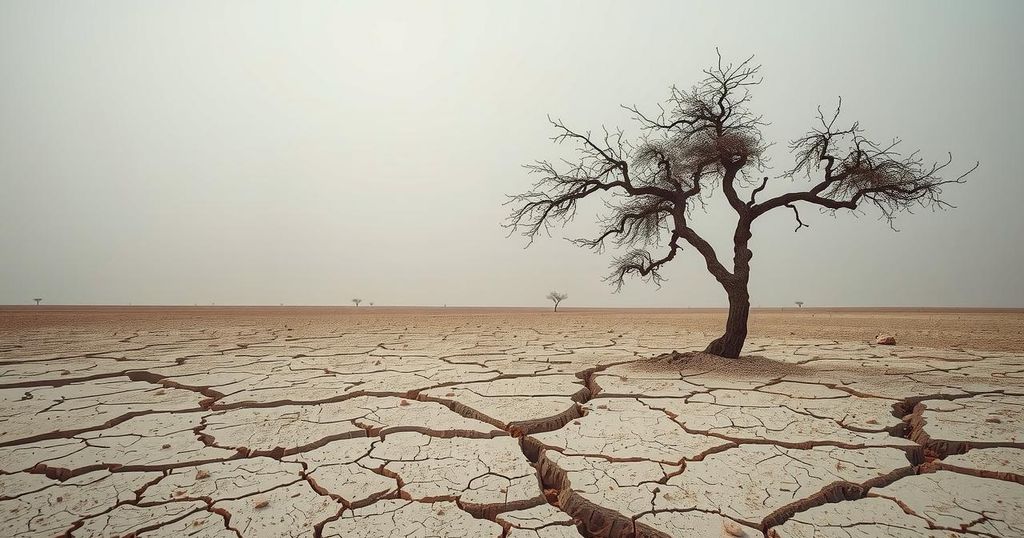The UN warns of a potential mass starvation crisis in Sudan, with over 600,000 people affected as famine takes hold. Human rights chief Volker Turk stressed the urgency for immediate action to end the conflict and facilitate humanitarian aid. Intense fighting has hindered operations, particularly at the Zamzam refugee camp, where aid organizations like WFP and MSF have had to suspend assistance amidst escalating violence. The ongoing war has resulted in widespread displacement, disease outbreaks, and significant loss of life.
The United Nations has issued a grave warning regarding the humanitarian crisis in Sudan, indicating that over 600,000 individuals are on the brink of starvation as famine deepens in the conflict-ridden nation. UN rights chief Volker Turk highlighted that famine conditions are prevalent in five areas, notably the Zamzam refugee camp in North Darfur, prompting organizations such as the World Food Programme (WFP) and Doctors Without Borders (MSF) to suspend their operations due to escalating violence.
During an address to the UN Human Rights Council, Turk painted a dire picture, contending that Sudan is “looking into the abyss.” He cautioned that unless swift action is taken to resolve the conflict, famine may extend to five additional areas in the coming months, while a further 17 regions are deemed at risk in what he termed the “world’s largest humanitarian catastrophe.” Turk called for immediate intervention to halt the war, provide emergency aid, and restore agricultural productivity.
Intense fighting between the military and the Rapid Support Forces (RSF) has severely hampered aid distribution, particularly in and around the Zamzam camp, where half a million people have sought refuge. The WFP had been supporting approximately 300,000 residents, but this month only 60,000 received assistance, following significant shelling incidents that devastated local infrastructure, including a central market essential for the camp’s economy.
Edem Wosornu, the UN humanitarian operations director, reported to the UN Security Council that satellite imagery indicated the use of heavy weaponry near Zamzam recently. Located just 12 kilometers south of el-Fasher, which is contested by the RSF, the camp exemplifies the escalating violence and humanitarian needs throughout Sudan.
Since the outbreak of war in April 2023, the crisis has resulted in tens of thousands of fatalities and created the “biggest displacement crisis in the world.” More than 12 million people have been forcibly relocated to refugee camps or other temporary locations, resulting in crippling aid dependency. Turk further noted that the RSF’s attempts to exert control in its held territories could exacerbate divisions and hostilities.
The UN estimates that around 30.4 million people in Sudan require urgent assistance, especially in food and healthcare. The country’s health system is under severe strain, with fewer than 30 percent of medical facilities operational. Diseases, including a cholera outbreak in White Nile state, are exacerbating the humanitarian situation, with notable fatalities and infections reported by entities such as Save the Children.
“Children in Sudan are caught in an endless cycle of violence, disease and hunger, with devastating impact,” stated Mohamed Abdiladif, Save the Children’s country director for Sudan. This underscores the urgency for immediate action and international attention to prevent a further deterioration of the crisis.
Sudan is facing an unprecedented humanitarian crisis, with mass starvation looming as conflict continues unabated. The UN has urged for immediate intervention to address the dire needs of millions at risk of famine and disease. The situation is exacerbated by widespread violence and operational challenges faced by aid organizations. Unless decisive action is taken, the consequences for the people of Sudan could be catastrophic.
Original Source: www.aljazeera.com




